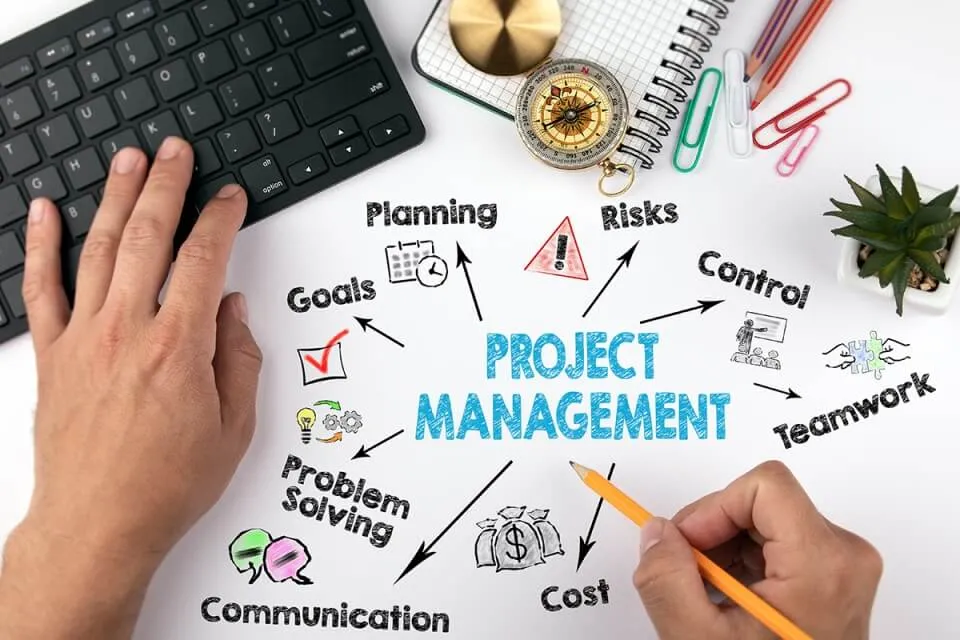Insider Insights: Unveiling Effective Project Management Best Practices

In the realm of project management, success is not merely about ticking off tasks from a to-do list. It's about orchestrating resources, mitigating risks, fostering collaboration, and delivering results that exceed expectations. In this insightful exploration, we uncover the essential best practices that underpin effective project management, from fundamental principles to leveraging cutting-edge technology like ChetsPMS to streamline workflows.
Understanding Project Management Fundamentals
At the heart of every successful project lies a solid foundation built on fundamental principles. Let's delve into these key concepts:
Planning and Defining Project Scope: A well-defined project scope sets the boundaries and objectives of the project, ensuring clarity and alignment among stakeholders. By outlining deliverables, timelines, and resources upfront, project managers can mitigate scope creep and keep the project on track.
Time Management and Scheduling: Time is a precious commodity in project management. Effective time management involves creating realistic schedules, prioritizing tasks, and allocating resources efficiently to meet deadlines. Utilizing tools like Gantt charts can help visualize timelines and dependencies, facilitating better planning and execution.
Budget Management: Managing project budgets requires careful oversight and strategic allocation of resources. Project managers must track expenses, monitor budget variances, and implement cost-saving measures to ensure projects stay within budget constraints without compromising quality.
Quality Management: Delivering high-quality outcomes is non-negotiable in project management. By establishing quality standards, conducting regular inspections, and soliciting feedback from stakeholders, project teams can uphold quality throughout the project lifecycle and exceed customer expectations.
Risk Management: Every project entails inherent risks that have the potential to derail progress. Effective risk management involves identifying, assessing, and mitigating risks proactively. By developing contingency plans and monitoring risk triggers, project managers can minimize disruptions and safeguard project success.
Enhancing Team Collaboration and Communication: Collaboration lies at the heart of successful project delivery. Project managers must foster a culture of open communication, encourage knowledge sharing, and leverage collaboration tools to facilitate seamless communication among team members, stakeholders, and external partners.
Continuous Improvement and Learning: The pursuit of excellence is an ongoing journey in project management. Embracing a culture of continuous improvement involves evaluating past performance, learning from successes and failures, and implementing best practices to refine processes and enhance organizational capabilities.
Leveraging Technology: The Value of ChetsPMS in Project Management
In today's digital age, technology has revolutionized the way projects are managed, enabling greater efficiency, collaboration, and transparency. Enter ChetsPMS, a cutting-edge project management platform designed to streamline workflows and empower teams to deliver exceptional results. Here's how ChetsPMS adds value to project management:
Project Planning & Scope Management: Utilizing Tools such as Interactive Gantt Charts in Roadmap and Task Lists for Defining Project Scope, Establishing Deliverables, and Setting Objectives in Task.
Centralized Collaboration: ChetsPMS provides a centralized platform where project teams can collaborate in real-time, share documents, and communicate effortlessly. This fosters greater transparency, reduces silos, and enhances teamwork.
Task Management: With ChetsPMS's intuitive task management capabilities, project managers can create tasks, assign them to team members, set deadlines, and track progress seamlessly. This ensures accountability and keeps projects on schedule.
Resource Allocation: ChetsPMS enables efficient resource allocation by providing visibility into resource availability and workload. Project managers can optimize resource allocation, avoid bottlenecks, and ensure optimal utilization of resources.
Reporting and Analytics: ChetsPMS offers robust reporting and analytics tools that provide insights into project performance, milestones achieved, and areas for improvement. This data-driven approach empowers project managers to make informed decisions and drive continuous improvement.
Integration Capabilities: ChetsPMS integrates seamlessly with other tools and platforms, such as Slack and Zoom Meeting ensuring smooth data flow and eliminating manual data entry tasks.
In conclusion, effective project management requires a combination of fundamental principles, strategic planning, and leveraging technology to streamline processes. By embracing best practices and harnessing the power of tools like ChetsPMS, project managers can navigate complexities with confidence and deliver successful outcomes consistently.